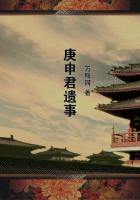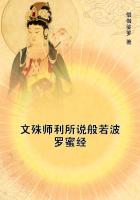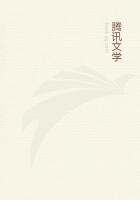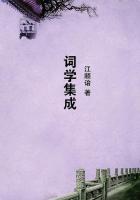What were the giant's religious views; what his views on politics and the duties of the citizen? Was he fond of children--or fond of them only in a dark and sinister sense ? To use a fine phrase for emotional sanity, was his heart in the right place?
Jack had sometimes to cut him up with a sword in order to find out.
The old and correct story of Jack the Giant-Killer is simply the whole story of man; if it were understood we should need no Bibles or histories.
But the modern world in particular does not seem to understand it at all.
The modern world, like Mr. Wells is on the side of the giants;the safest place, and therefore the meanest and the most prosaic.
The modern world, when it praises its little Caesars, talks of being strong and brave: but it does not seem to see the eternal paradox involved in the conjunction of these ideas.
The strong cannot be brave. Only the weak can be brave;and yet again, in practice, only those who can be brave can be trusted, in time of doubt, to be strong. The only way in which a giant could really keep himself in training against the inevitable Jack would be by continually fighting other giants ten times as big as himself.
That is by ceasing to be a giant and becoming a Jack.
Thus that sympathy with the small or the defeated as such, with which we Liberals and Nationalists have been often reproached, is not a useless sentimentalism at all, as Mr. Wells and his friends fancy. It is the first law of practical courage.
To be in the weakest camp is to be in the strongest school.
Nor can I imagine anything that would do humanity more good than the advent of a race of Supermen, for them to fight like dragons.
If the Superman is better than we, of course we need not fight him;but in that case, why not call him the Saint? But if he is merely stronger (whether physically, mentally, or morally stronger, I do not care a farthing), then he ought to have to reckon with us at least for all the strength we have. It we are weaker than he, that is no reason why we should be weaker than ourselves.
If we are not tall enough to touch the giant's knees, that is no reason why we should become shorter by falling on our own.
But that is at bottom the meaning of all modern hero-worship and celebration of the Strong Man, the Caesar the Superman.
That he may be something more than man, we must be something less.
Doubtless there is an older and better hero-worship than this.
But the old hero was a being who, like Achilles, was more human than humanity itself. Nietzsche's Superman is cold and friendless.
Achilles is so foolishly fond of his friend that he slaughters armies in the agony of his bereavement. Mr. Shaw's sad Caesar says in his desolate pride, "He who has never hoped can never despair."The Man-God of old answers from his awful hill, "Was ever sorrow like unto my sorrow?" A great man is not a man so strong that he feels less than other men; he is a man so strong that he feels more.
And when Nietszche says, "A new commandment I give to you, `be hard,'"he is really saying, "A new commandment I give to you, `be dead.'"Sensibility is the definition of life.
I recur for a last word to Jack the Giant-Killer. I have dwelt on this matter of Mr. Wells and the giants, not because it is specially prominent in his mind; I know that the Superman does not bulk so large in his cosmos as in that of Mr. Bernard Shaw.
I have dwelt on it for the opposite reason; because this heresy of immoral hero-worship has taken, I think, a slighter hold of him, and may perhaps still be prevented from perverting one of the best thinkers of the day. In the course of "The New Utopia"Mr. Wells makes more than one admiring allusion to Mr. W. E. Henley.
That clever and unhappy man lived in admiration of a vague violence, and was always going back to rude old tales and rude old ballads, to strong and primitive literatures, to find the praise of strength and the justification of tyranny. But he could not find it.
It is not there. The primitive literature is shown in the tale of Jack the Giant-Killer. The strong old literature is all in praise of the weak.
The rude old tales are as tender to minorities as any modern political idealist. The rude old ballads are as sentimentally concerned for the under-dog as the Aborigines Protection Society.
When men were tough and raw, when they lived amid hard knocks and hard laws, when they knew what fighting really was, they had only two kinds of songs. The first was a rejoicing that the weak had conquered the strong, the second a lamentation that the strong had, for once in a way, conquered the weak. For this defiance of the statu quo, this constant effort to alter the existing balance, this premature challenge to the powerful, is the whole nature and inmost secret of the psychological adventure which is called man.
It is his strength to disdain strength. The forlorn hope is not only a real hope, it is the only real hope of mankind.
In the coarsest ballads of the greenwood men are admired most when they defy, not only the king, but what is more to the point, the hero.
The moment Robin Hood becomes a sort of Superman, that moment the chivalrous chronicler shows us Robin thrashed by a poor tinker whom he thought to thrust aside. And the chivalrous chronicler makes Robin Hood receive the thrashing in a glow of admiration.
This magnanimity is not a product of modern humanitarianism;it is not a product of anything to do with peace.
This magnanimity is merely one of the lost arts of war.
The Henleyites call for a sturdy and fighting England, and they go back to the fierce old stories of the sturdy and fighting English.
And the thing that they find written across that fierce old literature everywhere, is "the policy of Majuba."

